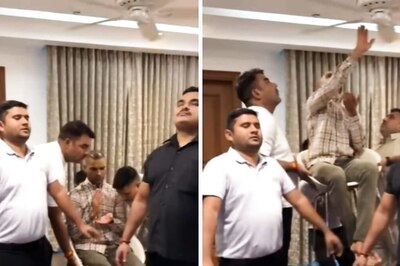
views
HYDERABAD: The stay order issued by court over reserving 25 percent seats in schools for students from economically weaker sections (EWS) has delayed the implementation of the Act in the coming academic session. While the quota is mandated by the Right to Education (RTE) Act, there is no clarity on who will foot the bill. The ambiguity over fees is a major concern for private school managements. “The unaided budget-private schools rely on the fees for running the institution. Untill there is a clear directive on who will pay the bill and how, implementing the quota will lead to heavy losses for the schools,” says Sangeetha Varma, general secretary of Hyderabad District Recognised Schools' Association.Implementation of the scheme will cost `720 crore over the next eight years. According to the planning coordinator of Rajiv Vidya Mission (Sarva Siksha Abhiyan), the cost of implementation will grow for each higher class. “Assuming all private schools fill up the 25 percent seats, 1.5 lakh children will be enrolled in the first standard. The expenditure per child is estimated to be `6,000 per year and going at this rate, additional Rs. 90 crore will have to be spent as these students move to the next class till 8th standard and new batches are enrolled,” he says. Officials at Rajiv Vidya Mission in Andhra Pradesh are uncertain if the amount spent by the state government will be reimbursed by the Centre. “An estimated Rs 90 crore will have to be disbursed by the state government annually to pay for the fee of the EWS students enrolled in the private unaided schools. Unless the amount is reimbursed, it is not possible to bring this into force. Also, 16 schools in the city have challenged the implementation of the quota. Any decision will be taken only after the matter is cleared,” says Dr R V Chandravadan, state project director of RVM.




















Comments
0 comment